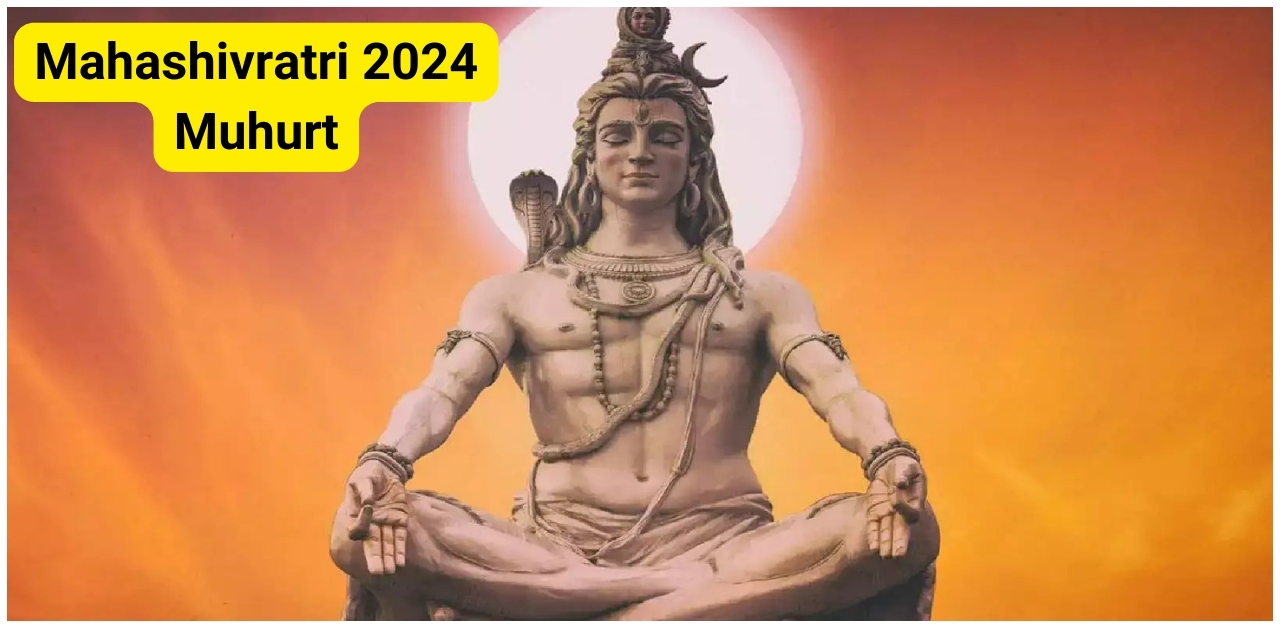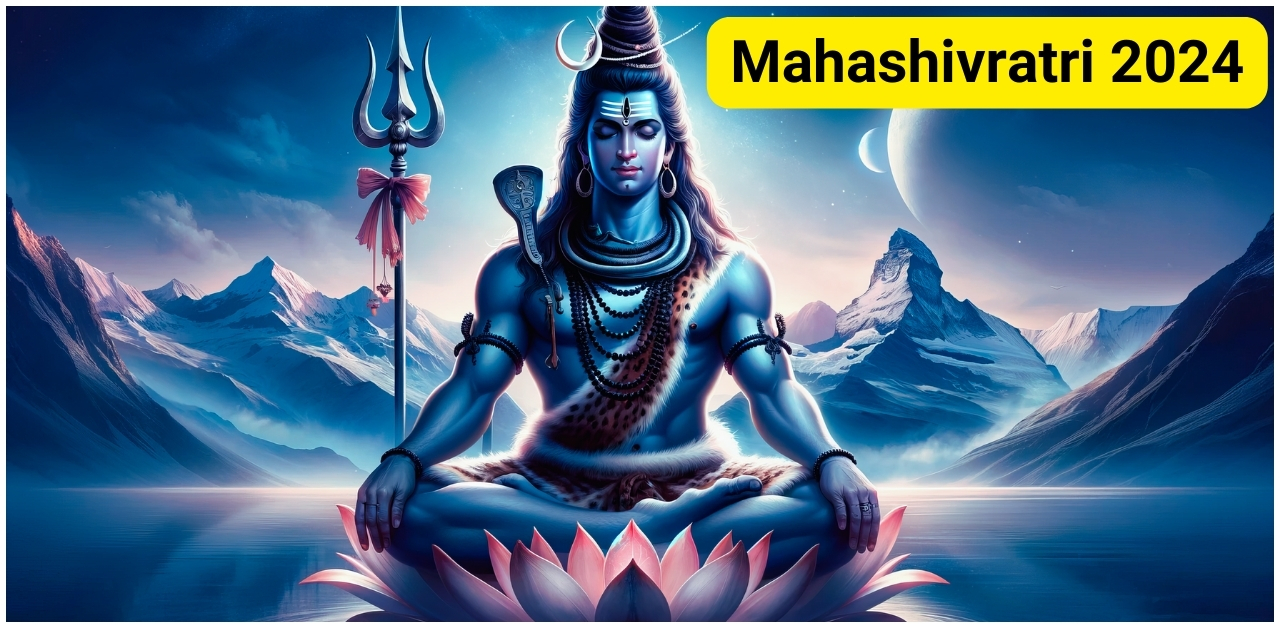Mahashivratri is an important Hindu festival, is celebrated annually on the 14th day of the dark half of the lunar month of Phalguna or Magha.
Mahashivratri 2024
This year, Maha Shivaratri will be celebrated on March 8th, 2024. Devotees observe this auspicious day by performing Shiva puja from dawn till dusk, participating in various rituals and keeping vigil throughout the night.
This festival carries deep spiritual and religious significance for Hindus as it is dedicated to Lord Shiva, the revered goddess known as the destroyer and the embodiment of compassion in the universe.
Maha Shivaratri also commemorates the sacred union of Lord Shiva and Goddess Parvati, symbolizing a lifetime commitment between the divine couple. It marks the auspicious occasion of their divine marriage, celebrated with reverence and devotion by millions of devotees.
Mahashivratri 2024 Muhurat
As per the Panchang, the fourteenth day of the waning phase of the Falgun month begins at 9:57 pm on March 8th, 2024, and concludes at 6:17 pm on March 9th, 2024. Since the Shivratri puja is traditionally performed during the night, the sunrise time is not of significance during this observance.
- Nishita Kaal Muhurat (auspicious period): Midnight 12:07 am – 12:55 am on March 9th.
- Vrat Parana Time (time to conclude the fast): From morning 6:37 am to afternoon 3:28 pm on March 9th.

Mahashivratri 2024 four Prahar puja timings:
- 1st Prahar Puja: Evening 6:25 pm – night 9:28 pm.
- 2nd Prahar Puja: Night 9:28 pm – Early morning 12:31 am on March 9th.
- 3rd Prahar Puja: Early morning 12:31 am – 3:34 am on March 9th.
- 4th Prahar Puja: Early morning 3:34 am – 6:37 am on March 9th.
These timings are crucial for devotees to observe the puja rituals and make their offerings during the auspicious periods.
Mahashivratri 2024 Significance
The festival of Mahashivratri holds immense significance, with devotees celebrating it across the country with great enthusiasm and joy. Here are some key aspects of its significance:
- Celebration with Enthusiasm: Mahashivratri is celebrated with immense fervor and happiness throughout the country.
- Nightlong Devotion: Devotees stay awake all night, performing rituals such as abhishekam (ritualistic bathing of the deity), Rudraabhishakam, and chanting various Shiva mantras to seek the blessings of Lord Shiva.
- Convergence of Divine Energies: Mahashivratri is a unique occasion symbolizing the convergence of divine energies of Lord Shiva and goddess Shakti.
- Legends and Mythology: Various legends surrounding Mahashivratri add to its significance. According to Shaivism tradition, it is believed that on this night, Shiva performs the cosmic dance of preservation, creation, and destruction. Additionally, another legend states that the divine marriage of Shiva and Parvati took place on this auspicious day.
Through these rituals and legends, Mahashivratri not only celebrates the divine union of Shiva and Parvati but also serves as a reminder of the cosmic dance of creation and destruction, signifying the eternal cycle of life.
Mahashivratri 2024 Rituals
On Mahashivratri, devotees start the day with purity and devotion. Here’s how they observe this special occasion:
- Early Morning Rituals: Devotees wake up early and begin their day with a holy bath, cleansing themselves physically and spiritually.
- Household Preparations: They ensure their homes are immaculately clean, paying special attention to the puja room where the rituals will take place.
- Offering Devotion: Lighting a diya (lamp) in the puja room, devotees offer their heartfelt reverence to Lord Shiva through prayers and rituals, expressing their devotion and seeking his blessings.
By starting the day with such rituals and acts of devotion, devotees honor Lord Shiva and invite his divine presence into their lives on this auspicious day of Mahashivratri.
Mahashivratri 2024 Religious Beliefs
Mahashivratri holds profound significance as a day when universal spiritual energies are believed to be particularly potent. Here’s why it’s celebrated and what it represents:
- Observance and Rituals: Mahashivratri involves fasting, meditation on Lord Shiva, promoting social harmony, and participating in vigils at Shiva temples, as devotees tap into the heightened spiritual vibrations of the day.
- Lord of Halahala: According to mythology, it’s said that on Mahashivratri, Lord Shiva consumed the poison (Halahala) that emerged during the churning of the ocean (Samudra Manthan), holding it in his throat, which turned blue. This act earned him the title Nilakantha (the one with a blue throat).
- Neelkanth Mahadev Temple: The Neelkanth Mahadev Temple is believed to be the site where this divine incident occurred, adding to its significance for devotees.
- Spiritual Reconnection: Mahashivratri serves as an opportunity for individuals to reconnect with the creator on a spiritual level, acknowledging the vast emptiness and tapping into profound spiritual insights.
- Night of Wakefulness: It’s known as the night of wakefulness and awakenings, where devotees open themselves to receive incredible visions and experience deep compassion.
By observing Mahashivratri, devotees not only pay homage to Lord Shiva but also embrace the opportunity for spiritual growth, enlightenment, and divine connection.
